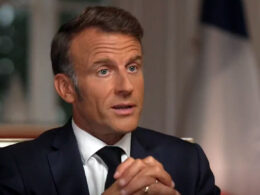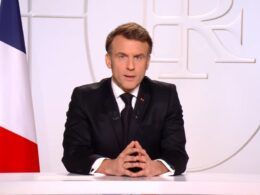Former US President Donald Trump’s recent assertions that Ukraine’s NATO aspirations triggered Russia’s full-scale invasion in 2022 have been strongly disputed by historians and political analysts, Forbes reported on 27 April.
In an interview with Time magazine on 22 April, Trump stated that Ukraine’s discussion of joining NATO was the cause of the war. However, Harvard University professor Serhii Plokhy rejected this claim, highlighting that Russian threats to Ukrainian territory predated NATO discussions, dating back to Boris Yeltsin’s presidency.
“Putin acted on those threats in 2003 trying to take over Ukraine’s Tuzla Island off the shores of the Crimea,” he said.
Plokhy emphasized that Russia’s 2014 annexation of Crimea was a reaction to Ukraine’s pro-European stance, not NATO membership.
Ukraine’s ex-FM Kuleba says Ukraine nowhere near real peace talks
Similarly, Syracuse University professor Brian Taylor noted that Ukraine had no realistic prospect of joining NATO between 2008 and 2022. Taylor said,
"Putin’s key motive for the full-scale invasion was his desire to restore Russian political control over Ukraine—it wasn’t about this or that piece of territory."
Taylor added that Russia’s fears of NATO were exaggerated, citing that Russia did not show comparable concern when Finland joined NATO in 2023, despite sharing a long border.
Trump also claimed "not seizing all of Ukraine" is Russia's concession
Trump’s controversial remarks extended beyond the war’s origins. When asked about Russian concessions, Trump stated that not seizing all of Ukraine was a major concession. Retired Australian Major General Mick Ryan called this claim “ludicrous," crediting Ukraine’s resilience for Russia’s failures on the battlefield.
Forbes noted that despite Russia suffering approximately 900,000 casualties since the invasion began, it has made no significant territorial gains since April 2022. Carnegie Endowment senior fellow Michael Kofman wrote that Ukraine is not facing an imminent collapse, contrary to some political narratives.
Brian Taylor highlighted that Trump’s shift contradicts longstanding US policy. Trump’s own State Department issued the 2018 “Crimea Declaration” reaffirming the non-recognition of territory seized by force.





